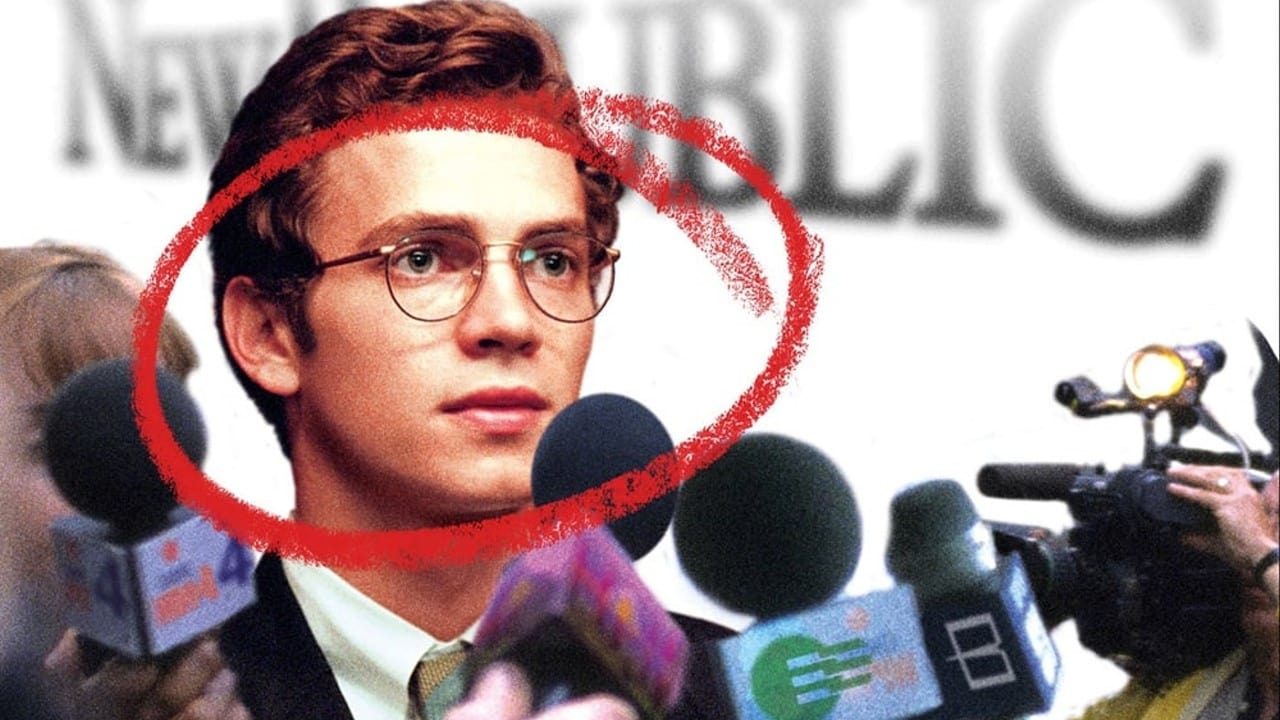Stometer
Save your money for something good and enjoyable
Mabel Munoz
Just intense enough to provide a much-needed diversion, just lightweight enough to make you forget about it soon after it’s over. It’s not exactly “good,” per se, but it does what it sets out to do in terms of putting us on edge, which makes it … successful?
Micah Lloyd
Excellent characters with emotional depth. My wife, daughter and granddaughter all enjoyed it...and me, too! Very good movie! You won't be disappointed.
Roxie
The thing I enjoyed most about the film is the fact that it doesn't shy away from being a super-sized-cliche;
Kirpianuscus
the media. the price of success. the need to impose your name to the others. and the chosen way to become famous. Hayden Christensen does a great job. his character remains the same. but the perception about him knows profound change. and this is the most provocative detail. because the viewer is implicated in the definition of verdict about Glass. not an easy thing in contemporary fight for rating, online/outline media who impose different versions of success for rating, in the time of superficiality and hungry of success with reduced effort. more than a good film, its virtue is to be useful support for reflection about near reality. the story of Glass could be remind of old myth of Faust. in same measure, it is interesting introspection in the circle of news makers who risk to becoming makers of truths. so, more than useful analysis about the fall of a star, remember of talent of Christensen or fatal error. a clear portrait of reality perception with the help of media.
valleycapfan
Coming in at a mere 93 minutes, this hidden little gem of a movie seems to take a bit longer to watch, but for all the right reasons. Watching a young, bright, but terribly flawed young man commit slow-motion career suicide that both betrays his friends and endangers their own reputations and livelihood is indeed uncomfortable, but is also what makes this film mesmerizing knowing that it is mostly real.Hayden Christensen's portrayal of Stephen Glass is that of a rather pathetic character whose willingness to not only deceive his readers and colleagues in pursuit of instant fame but also to continue to dig his professional grave ever deeper rather than cop to his fraud. Christensen's performance is convincing and workmanlike but not particularly memorable.The performance that IS memorable - so much that his character becomes the moral center of the film and steals the show - is that by Peter Sarsgaard of editor Charles Lane. Anyone who has been unwillingly thrust into a seemingly premature promotion under unfavorable circumstances (in this case replacing a much-loved editor who's been fired for sticking up for his writers) can immediately appreciate Lane's discomfort. That discomfort, expertly exuded by Sarsgaard, becomes interlaced with panic and eventually anger as he slowly realizes the magnitude of Glass' fraud and his ever-more-desperate attempts to maintain it. While his anger grows, so does his confidence in his own abilities, which is demonstrated with expert subtlety.The film's ability to end on an upbeat note, as the writing staff finally comes to appreciate Lane's predicament and concern for their feelings and reputations, both of which have been damaged by the colleague they've wrongfully defended most of the film, is welcome.The only criticism of this film is that it never really explains what was unique about Glass that made him fabricate stories, sources, and characters on such a scale. Most professional writers seek the approval of their peers, readers, and editors and the success that comes with getting great stories printed, but don't normally go to Glass' lengths to reach those goals. What drove Glass to go in such a misguided direction is never laid out.
lbor1017
"Once a liar, always a liar", my father once told me. Lying can be very deadly to people. You start off by only telling one lie, then end up having to tell another just to verify the first one. That is where the domino effect begins, you have to keep making up lies over and over again just to protect yourself. Instead, you just end up spinning yourself into a web that you can never really seem to untangle without hurting everyone around you. In the movie "Shattered Glass", a young writer by the name of Stephen Glass, got an amazing job as a journalist for the popular magazine The New Republic in his early 20's. His career hit off and he wrote 41 stories that bring an exciting new touch to the magazine. People loved reading his articles, until one day Mr. Glasses life came crumbling down. Twenty-seven out of forty-one article were either partially or completely fabricated. The New Republic could not tolerate this because they did not support non-fiction what-so-ever. Stephen found himself lying about everything just to cover up his tracks. He wanted a short cut to fame, but just wound up friendless, jobless, and completely untrustworthy. He would never be able to find a successful journalist career after that, because his word wasn't worth anything anymore. I thought film was alright (I would probably give it a 7.5 out of 10). It was based off a true story, which I enjoy a lot in films, and it has a really good ending. It also teaches a good lesson about lying and how the sweat and tears are worth the outcome. Cheating your way never works, you will end up at the bottom faster than you got to the top. You should never put yourself in a web of lies, because as my father once also shared with me, "honesty is the best policy".
danielle davis
Shattered Glass, the true story of Steven Glass, was an OK movie. It didn't really put me to the edge of my seat, but I wasn't so bored to the point that I found myself scrolling through Facebook rather than paying attention. The movie shows good examples on how lying screws people over in the long run. Steven Glass is a good example of a pathological liar, and how sometimes starting off with one lie has to lead to a lot more than expected. Steven Glass, a writer for The New Republic, sat there and wrote multiple articles about people that didn't exist, a company that didn't exist, and places that didn't exist. Steven did this multiple times and got away with it until his original editor got fired and one of his coworkers stepped up to take the position. The new editor was obviously more dedicated to this job than the previous one because it did not take him long to figure out that Steven's piece Hack Heaven was completely fabricated. Later on, this new editor figures out that 27 out of his 44 pieces were partially, if not completely, fabricated. All in all, this movie was just OK. There were no parts in this movie that made me really ponder what was going to happen next. Shattered Glass was very predictable and quite frankly I wouldn't recommend it to anyone that didn't feel like getting ticked off about the whole scenario.

